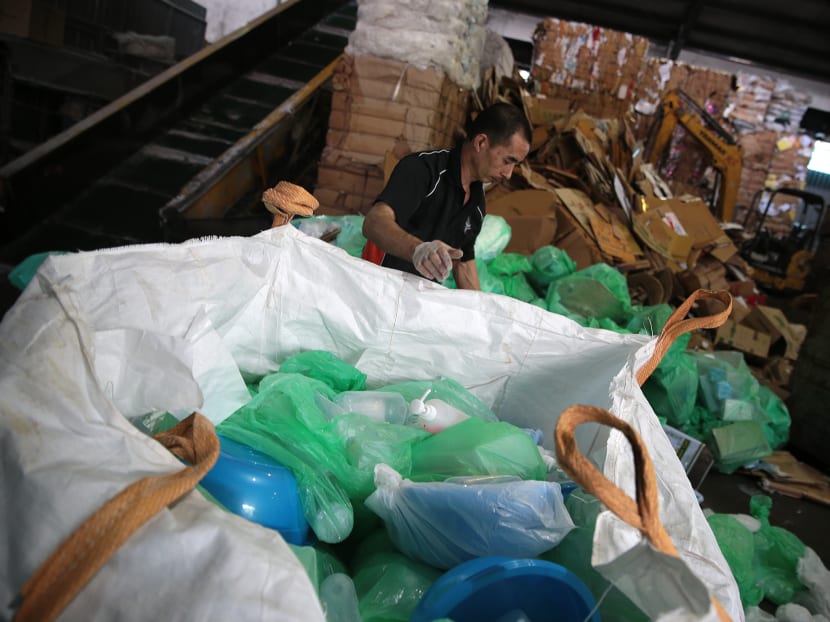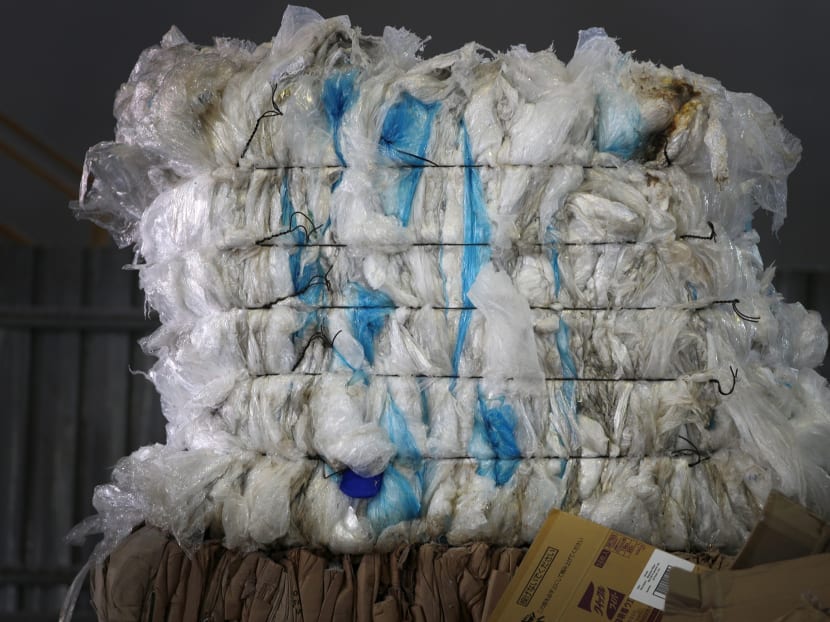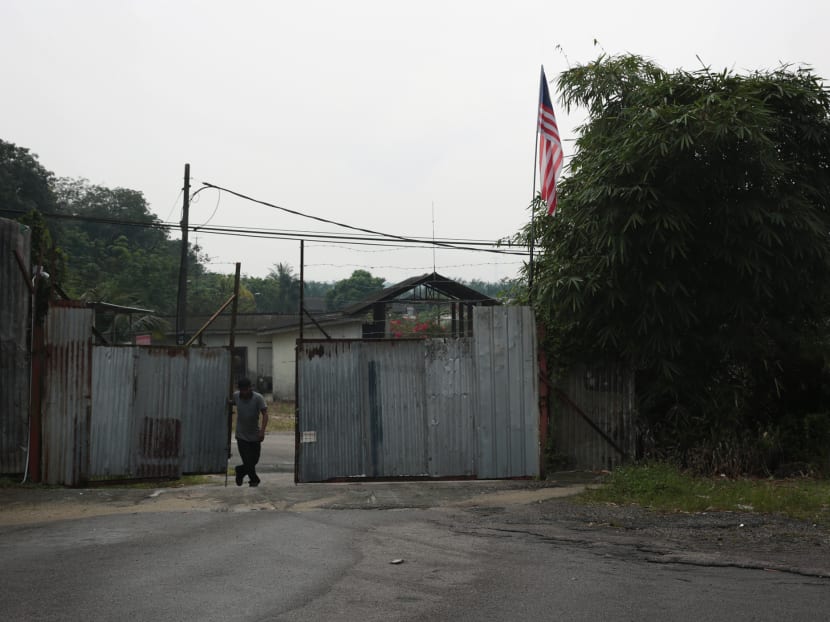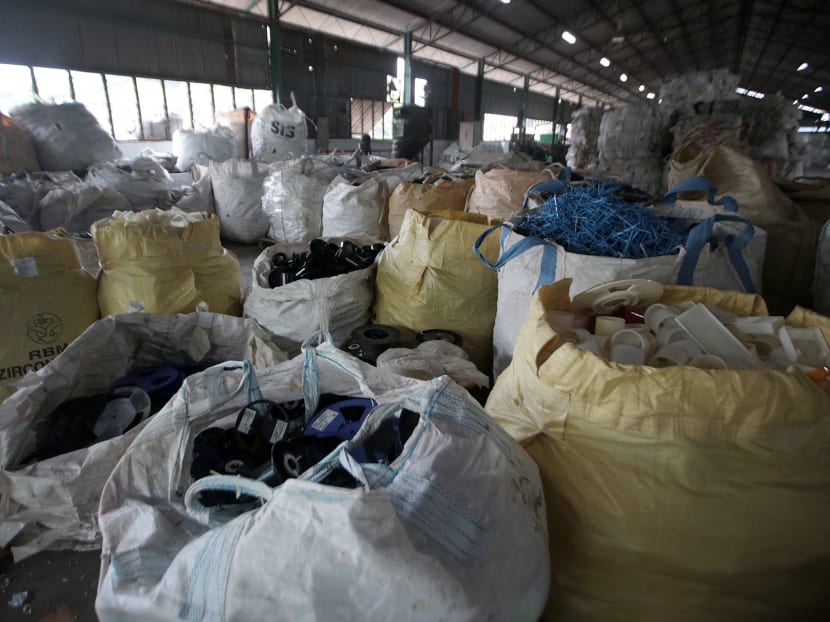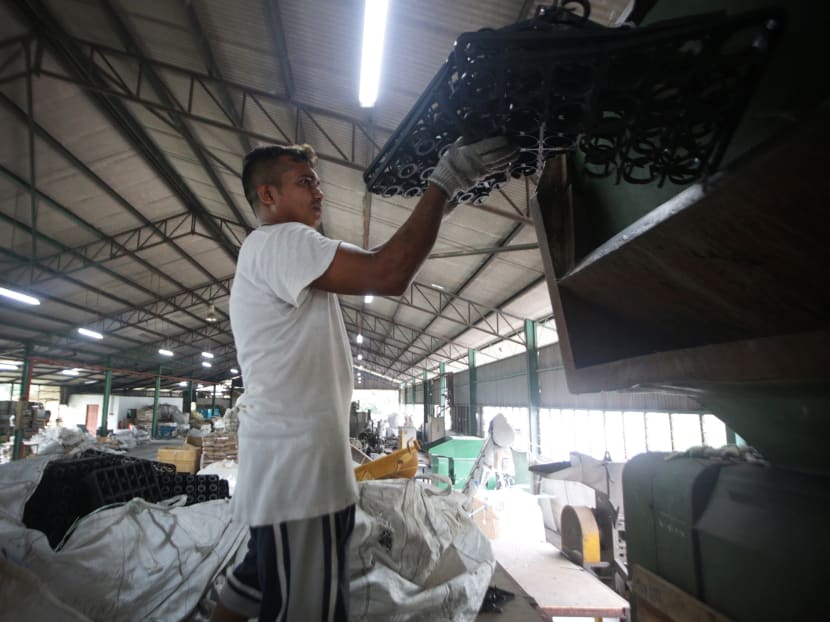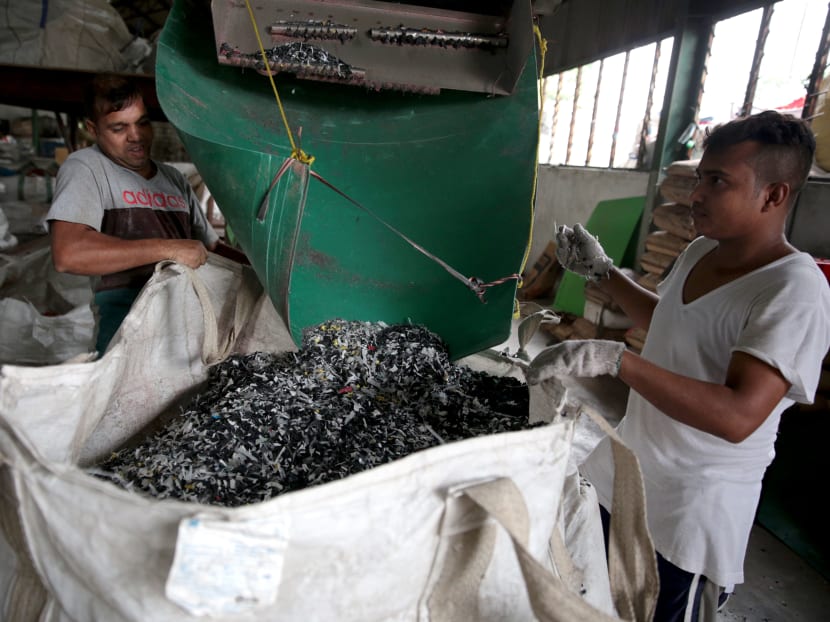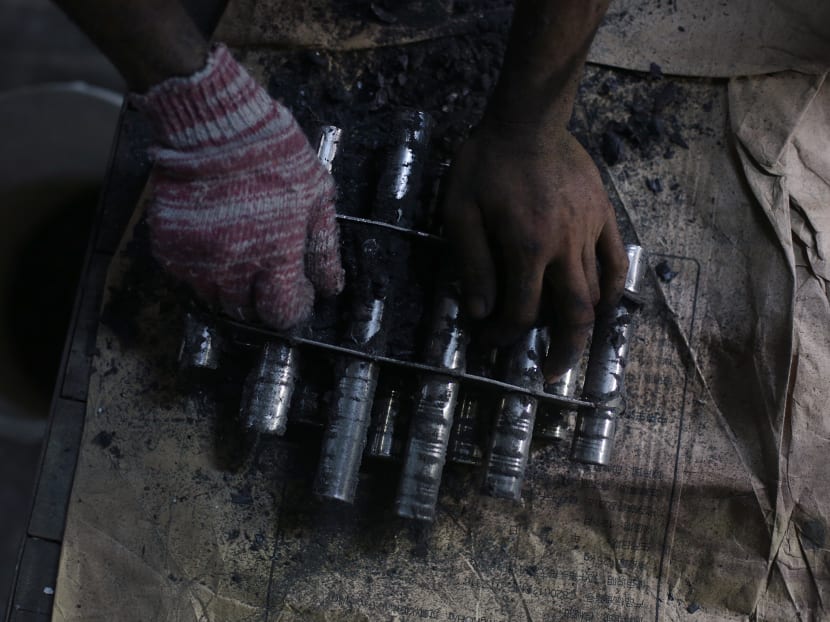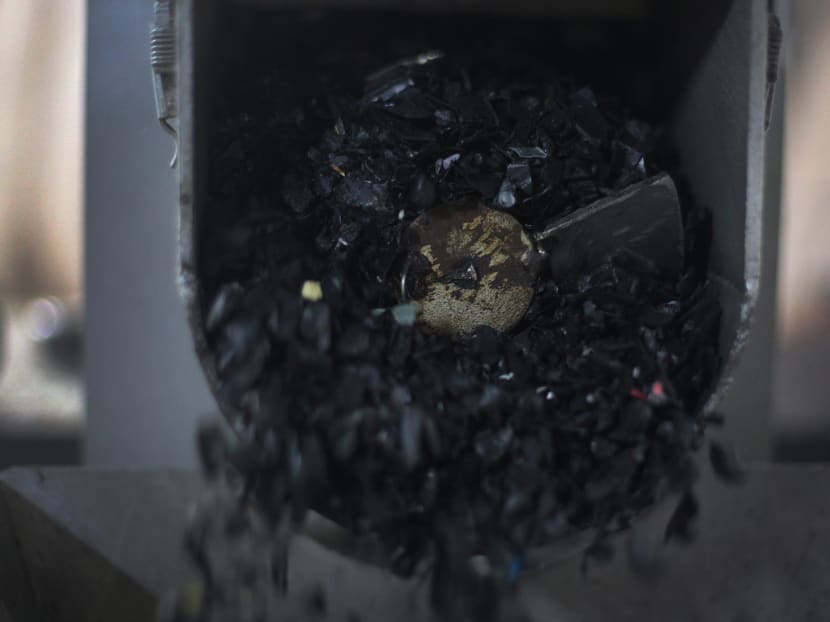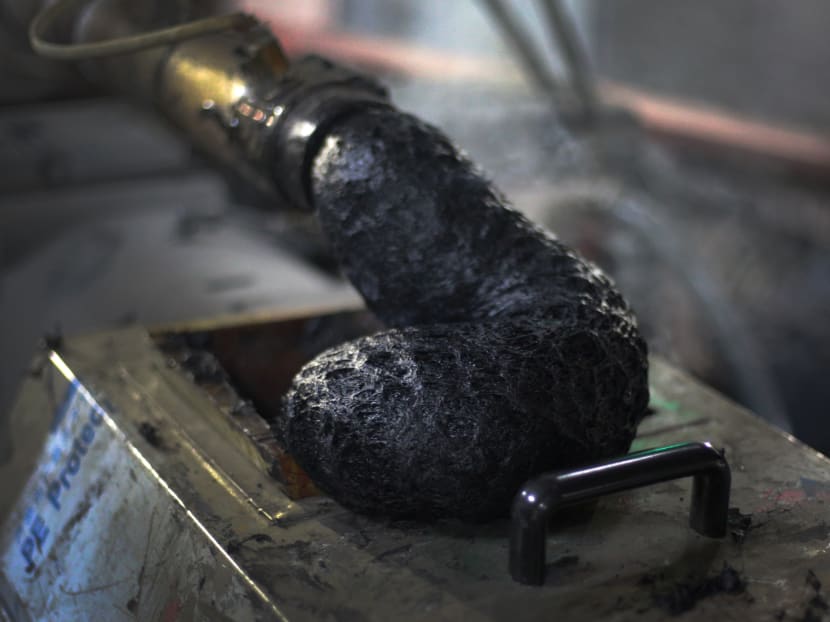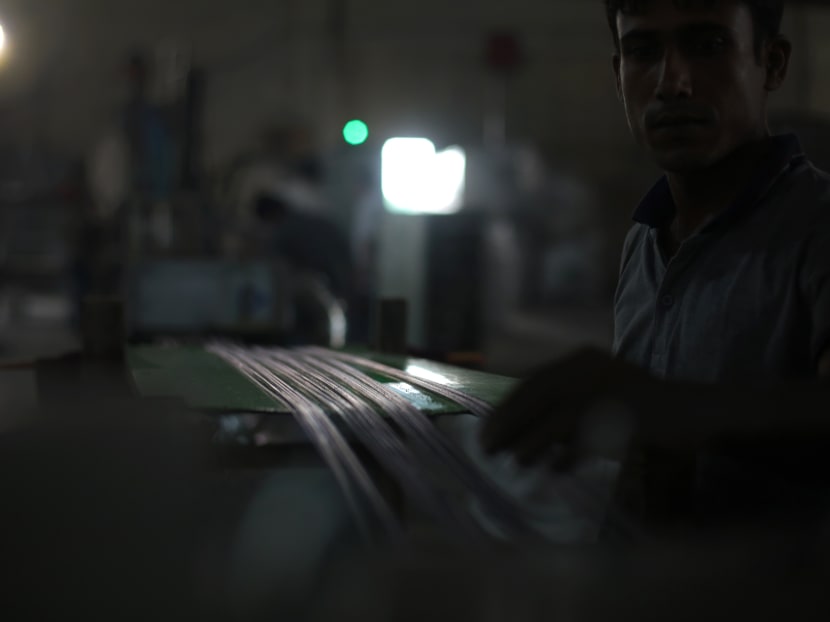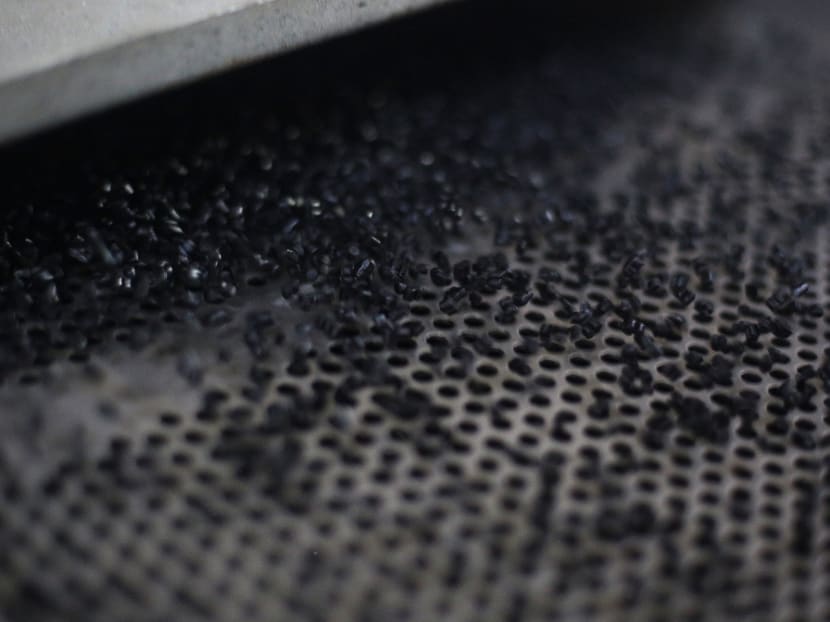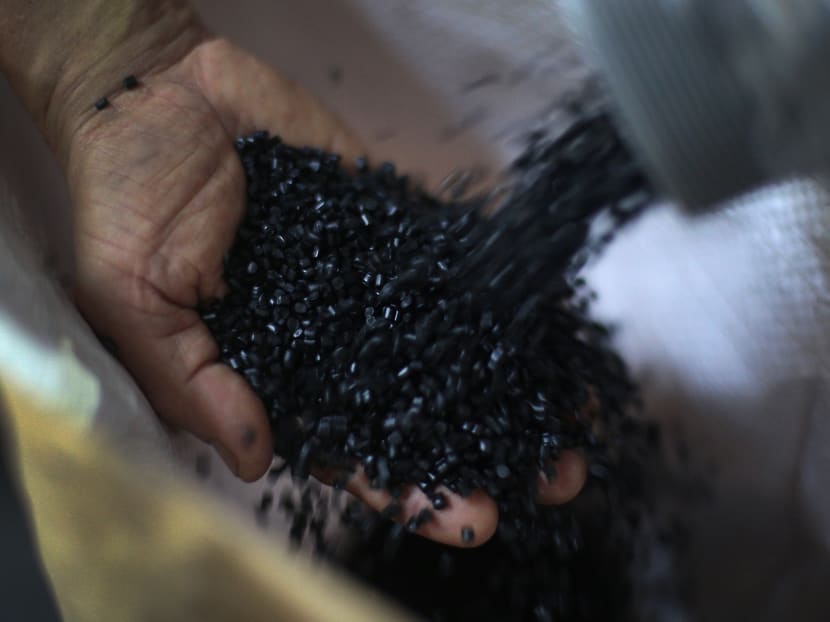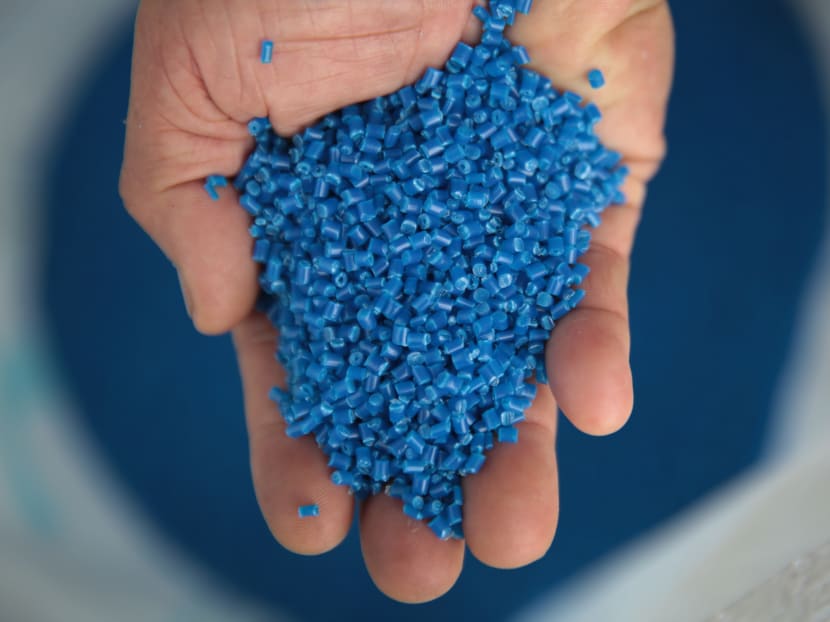How Singapore's plastic waste is recycled
Plastic products are commonly and heavily used in Singapore, but awareness about recycling is lacking. People here use at least 1.76 billion supermarket plastic bags, plastic bottles and plastic disposables yearly, and almost half of 1,003 respondents of a recent Singapore Environment Council survey use three or more plastic bags per trip to the supermarket.
Plastic products are commonly and heavily used in Singapore, but awareness about recycling is lacking. People here use at least 1.76 billion supermarket plastic bags, plastic bottles and plastic disposables yearly, and almost half of 1,003 respondents of a recent Singapore Environment Council survey use three or more plastic bags per trip to the supermarket.
Yet, around 70 per cent of people here are not completely sure about the type of plastics that can be recycled, resulting in many plastics being discarded as general waste instead of being recycled.
TODAY takes a closer look at how plastic is recycled at two companies, a process that begins in Singapore and ends in Johor Baru, Malaysia.
